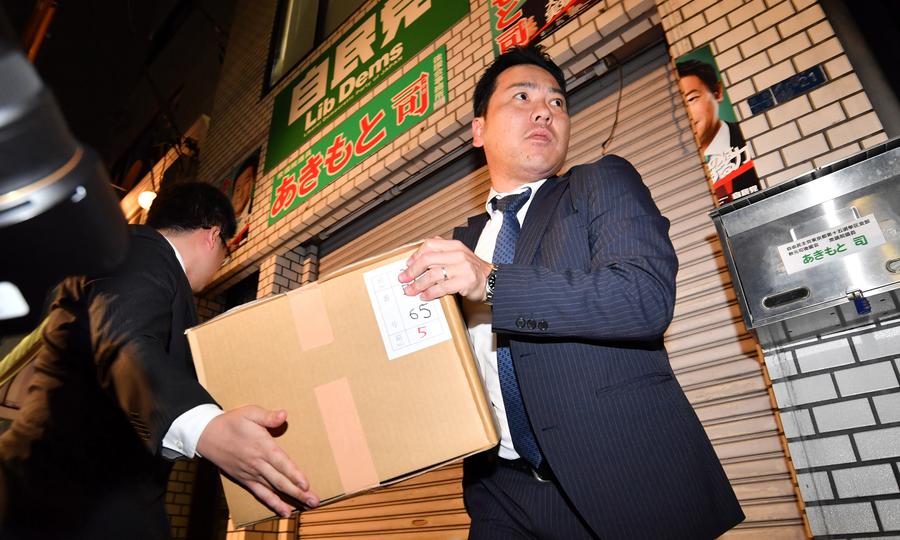Officers of the Tokyo District Prosecutor’s Office are shown conduct a raid Dec. 20 at a constituency office of Tsukasa Akimoto, a lawmaker, to investigate his alleged connections with a Chinese company related to a casino project. Photo: AFP / The Yomiuri Shimbun
Tsukasa Akimoto resigns from Abe’s ruling party following arrest
A Japanese lawmaker was arrested on suspicion of accepting bribes worth tens of thousands of dollars from a company that wanted to build a casino, Tokyo prosecutors said Wednesday.
Tsukasa Akimoto, a former member of Prime Minister Shinzo Abe’s ruling party, received three million yen in cash in 2017 ($27,400 at the current rate), prosecutors said in a statement without identifying the company.
The arrest could put pressure on the Abe administration, which legalized casinos in 2018 despite bitter opposition.
Akimoto, who denied the allegations in a tweet, was the senior vice minister in the Cabinet Office, in charge of overseeing the government’s casino policy. He has also served as senior vice minister of tourism.
Prosecutors alleged he received the money “knowing the company provided it for the purpose of asking for favorable arrangements” for casino projects.
Prosecutors also arrested three employees of Chinese betting company 500.com, which allegedly bribed Akimoto, according to public broadcaster NHK.
Akimoto resigned from Abe’s Liberal Democratic Party after his arrest.
Prosecutors also alleged he was “invited on a trip to Hokkaido … and received the financial benefits worth around 700,000 yen including airfare and accommodation.”
Japan’s government has long pushed for the construction of mega resorts that integrate casinos, entertainment venues, restaurants, hotels and conference facilities, similar to Las Vegas.
The policy’s supporters argue that casinos will boost the stagnant economy by bringing in tourists and business, similar to regional gambling hubs like Macau.
Japan is often viewed as the holy grail of gambling in Asia because of its wealthy population, proximity to the huge Chinese market, and an appetite for other forms of legal gambling such as horse racing and pachinko, a slot machine-style game.
But many activists are concerned about Japan’s well-documented gambling addiction issues.
Source: Asia Times & Agencies

